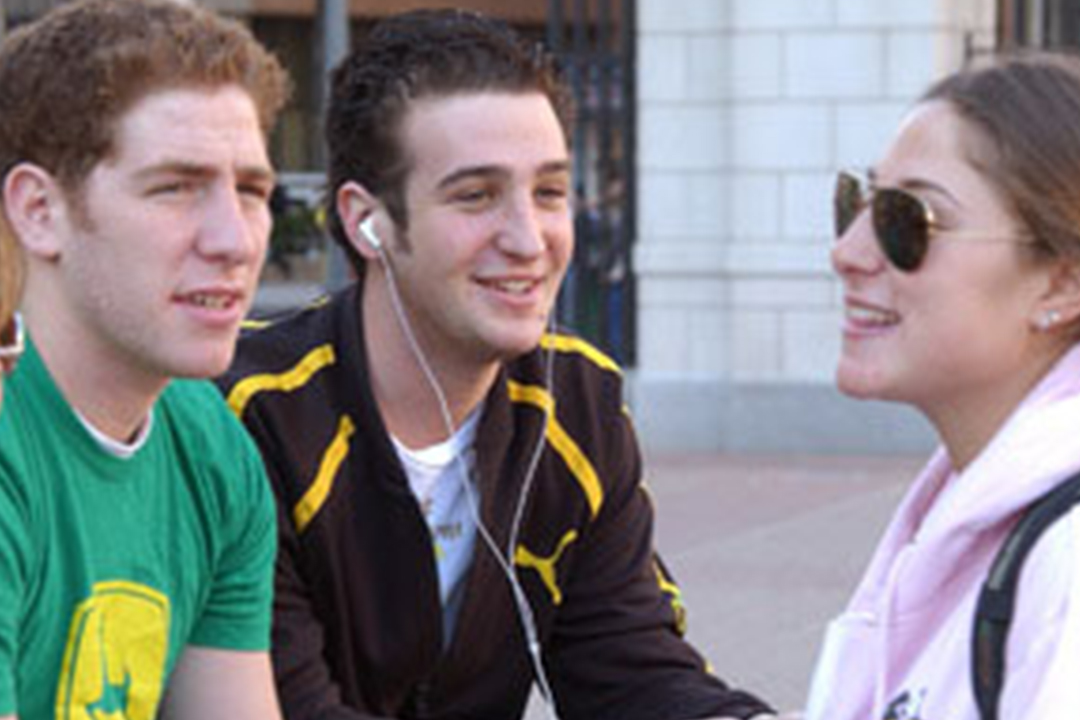Aristotle defined friendship as a “single soul residing in one body.” Jane Austen described it as the “finest balm for the pangs of disappointed love.” And Oscar Wilde adroitly noted “true friends stab you in the front.”
How would you define friendship? We asked several Columbian College faculty members what friendship means to them. Here’s how they responded:
“Friendship is a compromise between the push and pull of two feelings: love, which annihilates the distance, and respect, which restores it.”
—Tatiyana Apanasovich, Assistant Professor of Statistics
"Friendship is a delicate cocktail, blending social support, evaluative feedback, and intellectual growth."
—Nils Olsen, Assistant Professor of Organizational Sciences
“A friend is someone who listens patiently, speaks gently but honestly—even when it’s not what you want to hear---has your back on both the sunny and the stormy days, and is always ready to run face first into the next adventure with you.”
—Eva Vincze, Professor of Forensic Sciences
“I define a true friend as someone you can count on, no matter what, to tell you when you are wrong in private, but to back you up when you go out on a limb in public.”
—Tyler Anbinder, Professor of History
“Friendship for me is Janet and Gina, my best friends from fifth grade at Flynn Park Elementary School in Missouri. After nearly 50 years, they are still my best friends. Now, that's a very long friendship . . . the best friendship gets.”
—Nina Seavey, Assistant Research Professor of History and of Media and Public Affairs
“When I think about friendship, what immediately comes to mind is the South African word ubuntu—the concept that ‘I am because you are.’ When in the company of my closest friends, I like the person that I am, and I hope they feel I bring out their own best selves. A friend must be unselfish and loyal, ready to ‘jump into the fray’ when needed. In the words of Cole Porter, ‘if you ever lose your teeth when you're out to dine, borrow mine.’”
—Leslie Jacobson, Director of the Academy of Classical Acting and Professor of Theatre
“At a time when many people rely on Facebook postings and news feeds to maintain friendships, it’s the real-time, in-person—or at least telephonic—interactions that continue to define friendship for me. Whether it is someone you see on a daily basis or a ‘bookmark friend’ who understands you so intimately that you can easily pick up where you left off, a friend is always there for you. And they are as eager to share your bad news as your good, as willing to comfort as to celebrate. As Marlene Dietrich once said, ‘It is the friends you can call up at 4 a.m. that matter.’”
—Chad Heap, Associate Professor of American Studies
“A friend is someone who knows your heart and sees your soul, your myriad qualities, your goodness, and your not so goodness, calls you out when needed, and loves you anyway.”
—Geralyn Schulz, Associate Dean for Research and Outreach and Professor of Speech and Hearing Science
“Friendship conjures up that feeling you have when you can't wait to see someone because you can't wait to feel how you feel around them.”
—Christopher Cahill, Professor of Chemistry and International Affairs
“The Greek philosopher Epicurus stated it best: ‘Of all the things that wisdom provides to help one live one's entire life in happiness, the greatest by far is friendship.’ I believe that friendship and happiness are inextricably linked. When you recall some of the best times of your life, you're most likely remembering moments with your friends.”
—Catherine Anderson, Assistant Professor of Interior Architecture and Design
“I cite none other than Groucho Marx who said ‘Outside of a dog, a book is man’s best friend. Inside of a dog, it’s too dark to read.’ All kidding aside, Groucho was on to something. My dog possesses qualities we wish all our friends had. His loyalty is inexhaustible. He sticks by me merely because it’s me, forgives within moments the harsh tone of my impatience, and never fails to show me his affection. Books, as Groucho clearly understood, embody many of the same qualities. They challenge us, inform us, give us adventure and solace, and insist that we live up to our full intellectual potential. With any luck, we will all have friends with these qualities. But if not, we will always have our books and our dogs.”
—Stephen Forssell, Director, LGBT Health Graduate Certificate program


